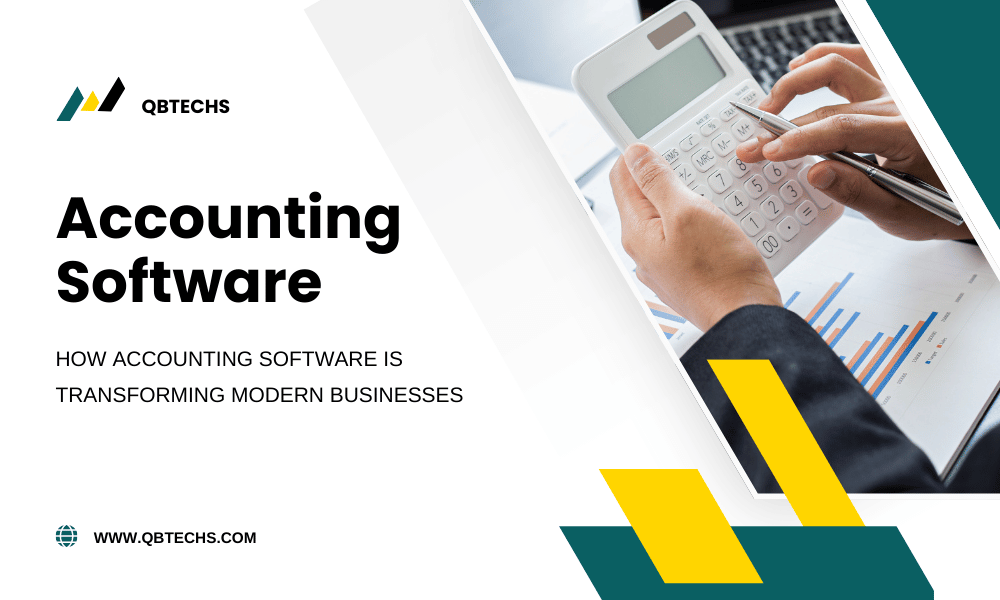The days of manual ledgers and paper trails are long gone. Today, businesses rely heavily on accounting software to streamline financial management, improve accuracy, and save time. From small startups to large enterprises, advanced accounting tools have reshaped how financial operations are handled. For companies looking to stay competitive, understanding the value of accounting software and implementing the right solutions has never been more critical.
In this article, we’ll explore how accounting software is revolutionizing modern business practices, the features businesses should prioritize, and the role of tools in managing essential processes like financial agreements and compliance.
The Rise of Accounting Software
Accounting software adoption has skyrocketed over the last decade, with businesses increasingly recognizing its potential to improve efficiency. According to a 2023 report by Grand View Research, the global accounting software market is expected to grow at a compound annual growth rate (CAGR) of 8.5% from 2023 to 2030. The surge in demand is fueled by small and medium enterprises (SMEs) embracing digital tools to automate financial management.
Automation is no longer a luxury; it’s a necessity for businesses aiming to optimize resources, reduce human errors, and focus on core operations.
Why Businesses Are Moving Toward Accounting Software
Manually handling financial tasks is time-consuming and error-prone. Accounting software provides solutions to these challenges by automating essential processes, ensuring compliance, and offering real-time financial insights.
Benefits of Using Accounting Software
- Time Savings: Automation of tasks like payroll, invoicing, and reconciliation significantly reduces manual effort.
- Improved Accuracy: Minimizes errors associated with manual data entry, ensuring accurate financial records.
- Cost Efficiency: Reduces the need for hiring multiple personnel to manage accounts.
- Real-Time Reporting: Provides up-to-date insights to help businesses make informed financial decisions.
- Scalability: Adapts to a company’s growth, accommodating more transactions and users as needed.
For businesses aiming for efficiency and transparency, accounting software is a game-changer.
Features to Look for in Accounting Software
Not all accounting software is created equal. Different tools offer varying features, and according to SmallBusinessHQ selecting the right software depends on a company’s specific needs.
Essential Features to Prioritize
- Invoicing and Billing: Generate invoices, automate follow-ups, and manage accounts receivable effortlessly.
- Expense Tracking: Monitor spending and categorize expenses for better budgeting and forecasting.
- Bank Reconciliation: Streamline the process of matching bank statements with recorded transactions.
- Tax Compliance: Automate tax calculations and generate reports to ensure compliance with local regulations.
- Customizable Reports: Access tailored financial reports, including profit and loss statements, balance sheets, and cash flow summaries.
- Integration Capabilities: Ensure seamless integration with other tools like CRMs, payroll software, and inventory systems.
Choosing software with these features ensures businesses have the tools they need to maintain financial health and growth.
Managing Financial Agreements with Accounting Software
In the world of business, financial agreements play a crucial role in establishing clear terms for transactions, partnerships, and obligations. These agreements include everything from loan contracts to vendor payment schedules and client retainers.
Accounting software simplifies the management of financial agreements by:
- Centralizing Documentation: Keeping all agreements in one accessible location reduces the risk of lost or misplaced files.
- Automating Reminders: Alerting businesses about upcoming payment deadlines or renewals ensures obligations are met on time.
- Tracking Payments: Monitoring when payments are due and when they’ve been received eliminates guesswork.
- Ensuring Compliance: Generating financial reports that align with the terms outlined in agreements ensures transparency and accountability.
With accounting software, businesses can streamline the entire lifecycle of financial agreements, freeing up time to focus on growth.
How Cloud Accounting Is Changing the Game
Cloud-based accounting software has revolutionized how businesses manage their finances. Unlike traditional on-premise software, cloud accounting offers flexibility, accessibility, and scalability.
Advantages of Cloud Accounting
- Accessibility Anywhere: Teams can access financial data from any device with an internet connection.
- Automatic Updates: Cloud software ensures you’re always using the latest version without the need for manual upgrades.
- Collaboration: Multiple users can collaborate in real-time, improving teamwork and decision-making.
- Enhanced Security: Cloud providers offer robust data security features, including encryption and regular backups.
- Cost-Effective: Cloud-based tools typically operate on subscription models, reducing upfront costs for businesses.
For businesses with remote teams or those managing multiple locations, cloud accounting has become an invaluable resource.
Challenges of Implementing Accounting Software
While accounting software brings undeniable benefits, the implementation process isn’t without challenges. Businesses must be aware of these obstacles to ensure a smooth transition.
Common Challenges and Solutions
- Learning Curve: Teams may struggle to adapt to new tools initially. Solution: Provide training sessions and resources to support adoption.
- Data Migration Issues: Moving data from legacy systems can be time-consuming. Solution: Partner with software providers that offer seamless data migration services.
- Choosing the Right Software: With so many options available, picking the right tool can be overwhelming. Solution: Assess business needs and trial software before making a final decision.
- Integration Problems: Some tools may not integrate well with existing systems. Solution: Choose software with strong integration capabilities.
Addressing these challenges ensures businesses make the most of their accounting software investments.
The Future of Accounting Software
The accounting software landscape continues to evolve as technology advances. Businesses can expect new features and tools to further streamline financial management and improve decision-making.
Trends Shaping the Future
- Artificial Intelligence (AI): AI-powered tools will automate even more tasks, such as expense categorization and fraud detection.
- Blockchain Integration: Blockchain technology will enhance transparency and security in financial transactions.
- Advanced Analytics: Real-time data analytics will provide deeper financial insights for strategic planning.
- Mobile Accounting: Businesses will increasingly rely on mobile apps to manage finances on the go.
- Automation of Compliance: Tools will automate compliance with regulatory changes, such as transaction monitoring rules or general data protection regulations (GDPR), ensuring businesses stay up to date.
.
Staying ahead of these trends will give businesses a competitive edge in managing their finances efficiently.
Final Thoughts
Accounting software has transformed how businesses handle their financial processes, offering improved accuracy, efficiency, and insights. Whether it’s tracking expenses, managing taxes, or organizing financial agreements, modern accounting tools simplify complex tasks and allow businesses to focus on growth.
As technology continues to evolve, businesses that embrace advanced accounting solutions will be better positioned to navigate challenges and achieve long-term success. With the right tools and a clear strategy, the path to streamlined financial management is well within reach.



Leave A Comment
You must be logged in to post a comment.